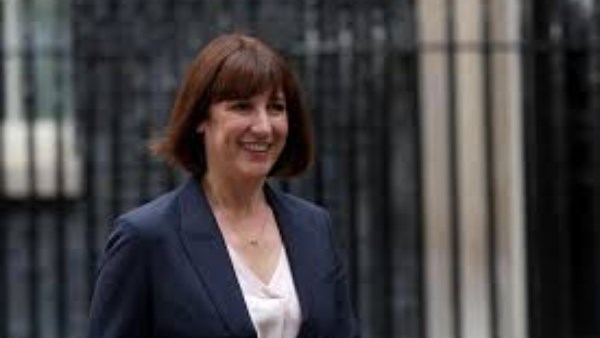
The U.K. is also facing the specter of a temporary rise in the rate of inflation
UK forges ahead with billions in welfare spending cuts as growth forecast halved

Britain’s Finance Minister Rachel Reeves on Wednesday announced billions of pounds worth of spending cuts as she looked to plug a budget shortfall amid stalling growth and higher borrowing costs since her first fiscal plan, released last fall.
“The responsible choice is to reduce our levels of debt and borrowing in the years ahead so we can spend more on the priorities of working people,” Reeves said, addressing lawmakers in Parliament.
Reeves said welfare cuts already set out last week are estimated to save £4.8 billion in the welfare budget, and would boost measures to get people back into work. She also laid out plans to bring forward investment spending and measures to crackdown on tax avoidance and evasion to raise revenues for the Treasury.
Warning that “we are living in an uncertain world,” Reeves said defense spending would increase to 2.5% of GDP with reductions in overseas aid helping to fund the boost. She also said the Labour government’s planning reforms would “lead to housebuilding reaching a forty year high” and would help grow the economy.
The finance minister had already vowed to stick to her self-imposed “fiscal rules” set out in the “Autumn Budget” last October: to ensure that day-to-day spending is met by tax revenues and that public debt is falling as a share of economic output by 2029-30.
On Wednesday, she reiterated her position that these rules were “non-negotiable” and that her new policy announcements meant she would meet the so-called “stability” and “investment” rules two years early.
The U.K.’s finance minister’s Spring Statement was delivered alongside the latest economic forecasts from the Office for Budget Responsibility (OBR), the country’s independent public finances watchdog.
The OBR, Reeves said, had downgraded the U.K.’s growth forecasts for 2025 and halved its previous 2% estimate.
“I am not satisfied with these numbers. That is why we on this side of the house are serious about taking the action needed to grow our economy,” she said, responding to the OBR’s growth downgrade.
She added that the OBR had upgraded its growth forecast for 2026 “and every single year thereafter,” however, with the watchdog predicting GDP growth of 1.9% in 2026, 1.8% in 2027, 1.7% in 2028, and 1.8% in 2029.
“By the end of the forecast, our economy is larger compared to the OBR’s forecast at the time of the Budget,” she said.
Reeves concluded her speech by telling lawmakers that “the world is changing.”
“We can see that and we can feel it. A changing world demands a government that is on the side of working people. Acting in their interest. Acting in the national interest. Not retreating from challenges.”
Following the statement, the OBR published its economic forecasts in which it said the chancellor had restored the Treasury’s fiscal “headroom” amid a “risky outlook.”
“Before accounting for policy, higher debt interest costs and other forecast changes left the current budget in deficit by £4 billion in 2029-30. Policy changes, including welfare reforms and day-to-day departmental spending reductions, restore it to the £10 billion surplus the Chancellor had in October,” the OBR said.
“This remains a small margin against the risk of further shocks to interest rates, productivity, or global trade.”
‘A changing world’
Since her initial budget was presented last October, Reeves has come under increasing pressure to cut public spending, raise taxes further or to bend the fiscal rules amid a rise in U.K. borrowing costs that wiped out the fiscal headroom Reeves had within her initial budget.
The U.K. is also facing the specter of a temporary rise in the rate of inflation, according to the Bank of England, along with continuing economic sluggishness in recent months. U.S. President Donald Trump’s trade tariffs, seen to be inflationary, also posing a headwind for the economy although the U.K. has not been targeted yet.
Reeves on Wednesday noted that the OBR forecast that inflation would “average 3.2% this year before falling rapidly to 2.1% in 2026 and meeting the 2% target from 2027 onwards, giving families and businesses the security that they need and providing our economy with the stable platform it needs to grow.”
The Treasury had already issued a press release Tuesday stating that Reeves would pledge to bring about “security and national renewal” in her Spring Statement that would, it said, be designed “to kickstart economic growth, protect working people and keep our country safe.”





-1120252475029447.jpg)















